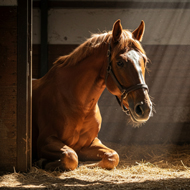Government sets out plan to end badger culling
Over 230,000 badgers have been culled in the past decade, and more than 278,000 cattle compulsorily slaughtered.
Badger culling will come to an end, the government has announced, as it starts work on creating a new bovine TB eradication strategy.
The Department for Environment, Food and Rural Affairs (Defra) plans to collaborate with farmers, veterinary surgeons, scientists, and conservationists as it develops the new strategy. This will include using a ‘data-led and scientific approach’ to end the badger cull by the end of the current parliament (which could be as late as 2029).
Defra has said that ‘existing cull processes’ will still go ahead to provide clarity for farmers while new measures are being rolled out.
The first badger population survey in over a decade will begin during the winter to assess the impact of culling over the past decade. The last such survey was conducted between 2011-13. A new wildlife surveillance programme is also being launched to provide up-to-date data on the prevalence of TB in badger populations.
The government also plans to create a Badger Vaccinator Field Force to increase the rate of badger vaccination, as well as launching a study to analyse the impact of badger vaccination on TB incidence in cattle.
Work on the development of a cattle vaccine will be accelerated, with the next stage of field trials planned to begin in the coming months.
Over the past decade, more than 278,000 cattle have been slaughtered and over 230,000 badgers culled as part of efforts to control the spread of the disease.
Christine Middlemiss, chief veterinary officer, said: “Bovine tuberculosis is one of the most difficult and prolonged animal disease challenges we face, causing devastation for farming communities.
“There is no single way to combat it, and a refreshed strategy will continue to be led by the very best scientific and epidemiological evidence.
“With the disease on a downward trajectory, we are at a crucial point. Working in collaboration with government and stakeholders will be the only way we achieve our target to eradicate bovine tuberculosis in England by 2038.”
The decision to end badger culling has been criticised by the National Farmers’ Union (NFU).
NFU president Tom Bradshaw said: “This terrible disease continues to plague farmers and their livestock, and while significant elements of the government’s proposed TB strategy are still being researched and are not yet deployable at scale, they must not overlook the contribution of the tried, tested and successful disease control model.
“Peer-reviewed scientific papers show that targeted badger culling provides success and has a part to play in a strategy where there is evidence that it is the right tool to contain and reduce TB.”
Image © Shutterstock



 Zoetis UK has called on horse owners to complete a short online survey about their horse's behaviours.
Zoetis UK has called on horse owners to complete a short online survey about their horse's behaviours.